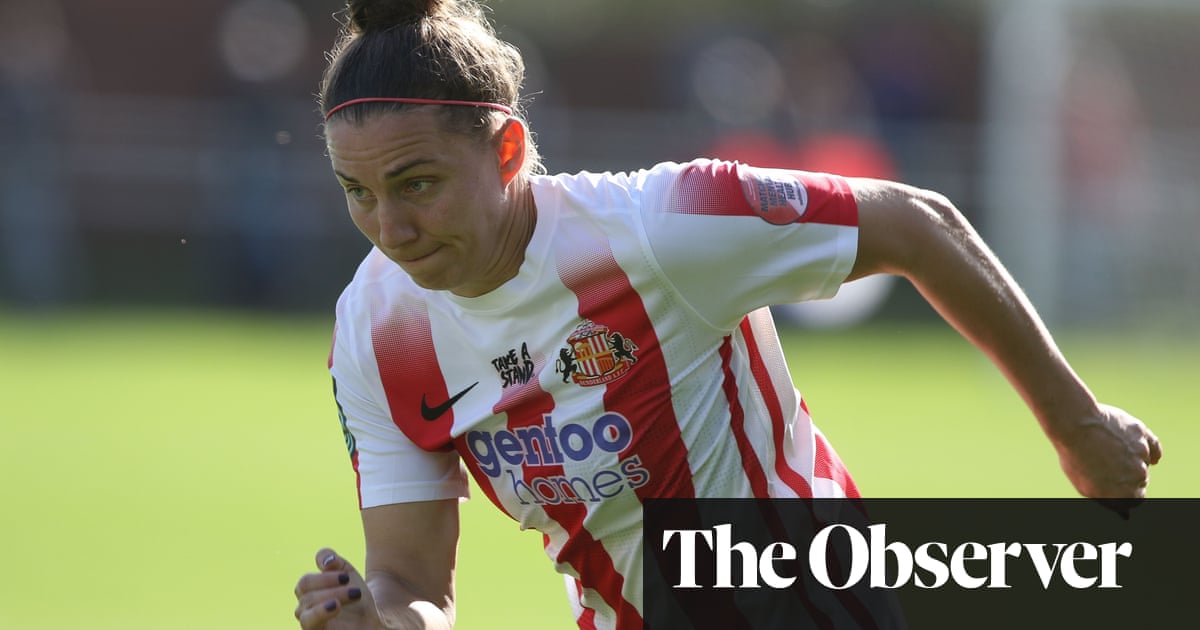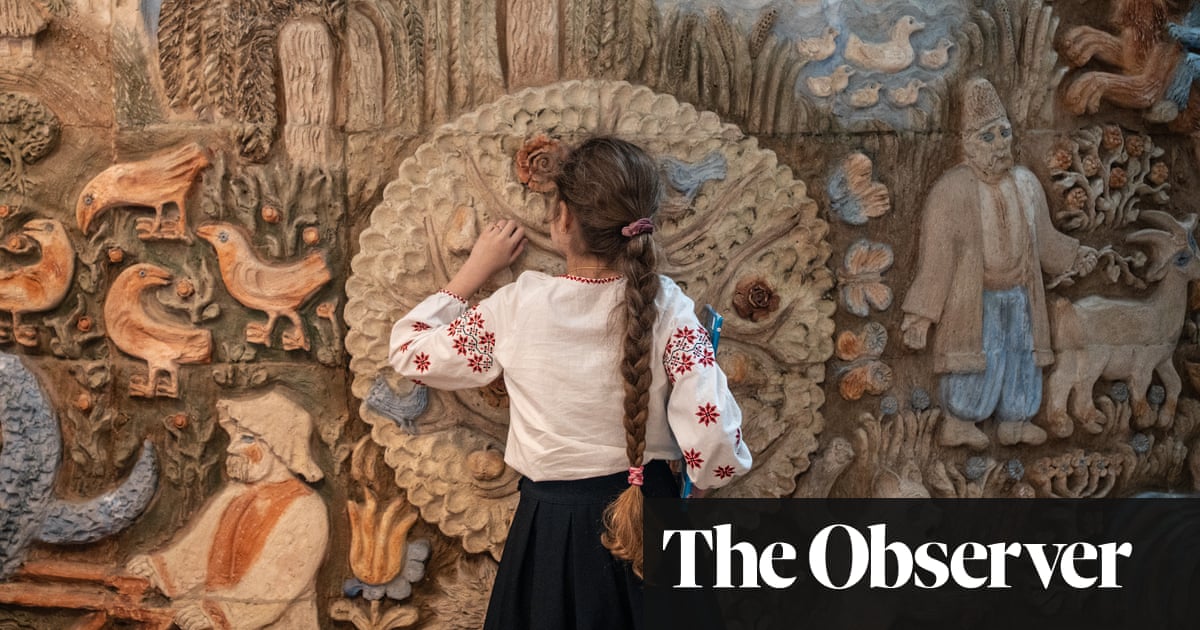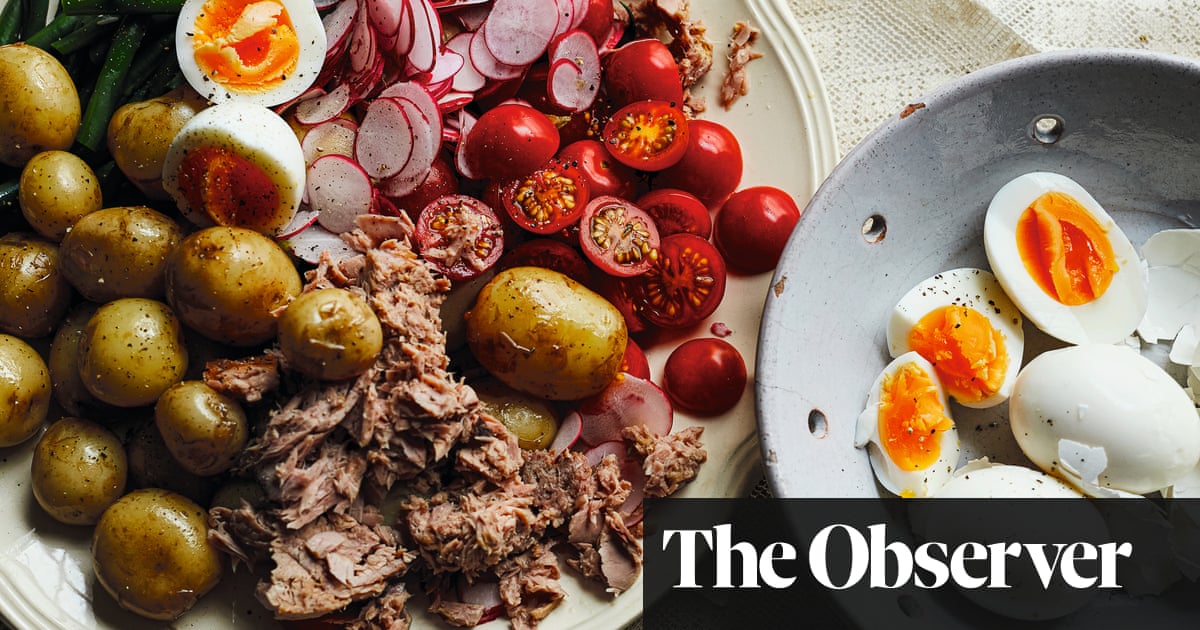
Grace McCatty had turned tearful and her Kenyan friends were torn between concern and puzzlement. “I watched the Euro 2022 final in Nairobi and, when England won, I was quite emotional,” says the Sunderland centre-half. “The colleagues I was with were saying: ‘What’s wrong?’ But I knew just how hard everyone had worked to get there and what a huge moment it was for women’s football in this country.”
McCatty was delighted to see Mary Earps excelling in goal throughout a tournament that culminated in the Lionesses’ watershed Wembley win against Germany last July. The pair previously played together at Bristol City and McCatty is “looking forward” to a “catch up” when Earps and her WSL-leading Manchester United teammates visit the Championship club in Sunday’s Women’s FA Cup fourth-round tie.
The prospect of watching England’s Earps, Alessia Russo, Ella Toone and Nikita Parris on Wearside has ensured a 2,500 sell-out at the Eppleton Colliery Welfare ground in Hetton where Melanie Reay’s side play. “I know a lot of people are coming to see Russo and the rest of Manchester United’s big names but I hope they’ll enjoy watching us too,” says McCatty. “We’re a very young team and it’s an incredible opportunity to test ourselves against some of the world’s top players.”
Unlike most of Reay’s squad, McCatty, now 33, has played against many of England’s leading lights. During her days at Bristol City (then Bristol Academy), she finished on the losing side in two FA Cup finals and reached the Champions League quarter-finals.
It was during her Bristol days that she fell in love with Africa and began planning a long-term future in international development. Back then the possibility of sustaining a full-time professional career as a footballer seemed remote and she combined playing with studying for a degree in coach education and sports development at Bath University.
Little did McCatty know that course would open a door to a whole new world. “I’ve always loved travelling and, at Bath, an opportunity came up to volunteer as a coach with an NGO in Zambia for six weeks,” she says. “It changed the direction of my life. Seeing the joy football brought to children growing up in poverty made me realise there’s more to the game than just playing at elite level. I realised I could use my passion for sport to achieve greater goals.”
After completing postgraduate studies at Southampton University she joined the Prince’s Trust International and now manages projects designed to expand young people’s educational employment and entrepreneurial opportunities in Kenya, Uganda and Tanzania. Although large parts of her job can be performed remotely from England, the Gloucester-born defender is on the ground in sub-Saharan Africa for around three-and-a-half months a year.
“I spend two months there in the summer and the rest during the season when I try to travel in international breaks,” says McCatty, who recently squeezed in a midweek trip to the United Nations HQ in New York between games.
As if a schedule involving training three nights a week at the Academy of Light facility Reay’s squad share with Sunderland’s Championship men was not tough enough, she is also studying part-time at Durham University. Her PhD explores the importance of sport in education and community settings, particularly in Zambia. “Playing football helps young women and girls challenge gender norms and stereotypes,” she says. “It helps them see themselves differently.”
Sunderland’s collective self-esteem was shattered in 2018 when, with their parent club engulfed by financial problems, they were demoted two divisions. Despite Reay’s side having just finished seventh in the WSL they failed to secure a licence for either the newly professional top tier or the semi-professional Championship.
Like their male counterparts, Sunderland women have since escaped the third tier. They now sit eighth in the Championship but the supportive new owners of a club which in recent years has produced a stream of senior England players – Lucy Bronze, Beth Mead, Steph Houghton and Jill Scott – will not rest until Reay’s team return to the elite division.
“We understand Sunderland’s heritage and know we’re part of a much bigger picture which is about getting this entire club back where it belongs,” says McCatty. “We’re lucky to have a manager of Mel’s experience and ability and being integrated with the men’s team is a massive help.
“All the coaches share rooms, ideas and expertise and the indoor facilities mean that, regardless of the weather, we never miss training sessions. Tony Mowbray’s men’s first team train at different times but they’re very supportive.”












